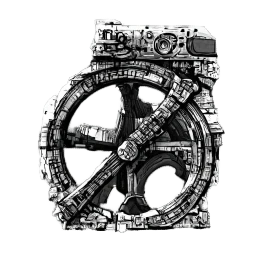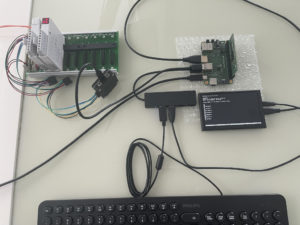 One of the goals of Machdyne is to create computers and tools that will be useful long into the future, even, or especially if the future is some sort of computing dystopia, from the human perspective.
One of the goals of Machdyne is to create computers and tools that will be useful long into the future, even, or especially if the future is some sort of computing dystopia, from the human perspective.
Survival computing is an extreme form of timeless computing that lets you compute, or interact with computers, when you have very limited access to modern technology or resources.
We are generally optimistic about the future so instead of an urgent necessity we usually view survival computing as more of a thought experiment where we don’t take for granted that inexpensive computation will always be available or that we will have access to plenty of electricity, or to the Internet.
There are also places on Earth today where computers are not readily available or access to them is limited due to lack of resources. People can benefit today from low-cost low-power computers even without the latest technology or the latest applications.
In the event that such a scenario were to become a reality for everyone, due to war, natural disaster, legislation, AI, or for a number of other reasons, it would be good if some preparations had been made in order to preserve access to computation and critical information.
 We think that timeless computers will play an important role in survival computing by ensuring access to timeless applications thanks to the benefits of FPGA computing. In addition to timeless applications it will be important to be able to interface with other systems. For example, a customer shared with us this photo of Mozart and Werkzeug connected to an industrial control system.
We think that timeless computers will play an important role in survival computing by ensuring access to timeless applications thanks to the benefits of FPGA computing. In addition to timeless applications it will be important to be able to interface with other systems. For example, a customer shared with us this photo of Mozart and Werkzeug connected to an industrial control system.
Thinking about survival computing has led us to many projects, here are some ideas inspired by survival computing that we’re experimenting with:
- Stahl and Blaustahl are storage devices that can potentially retain data for centuries
- Notnagel is a battery-powered handheld FPGA computer with a built-in display
- Glasur is a stand-alone front-panel computer that can be powered by a solar panel
- Zeitreise is a minimalist battery-powered Linux-capable cyberdeck
- RAD5 is a stand-alone USB-powered hex editor and serial terminal
- Ark is an information distribution for offline computers
- Tidegrow is an open-source low-power automated hydroponics project
Whatever the future holds we find it interesting to think about the possibilities and to do what we can now to prepare for Things to Come.
Thanks for reading. You can follow us on X and GitHub for the latest updates.
